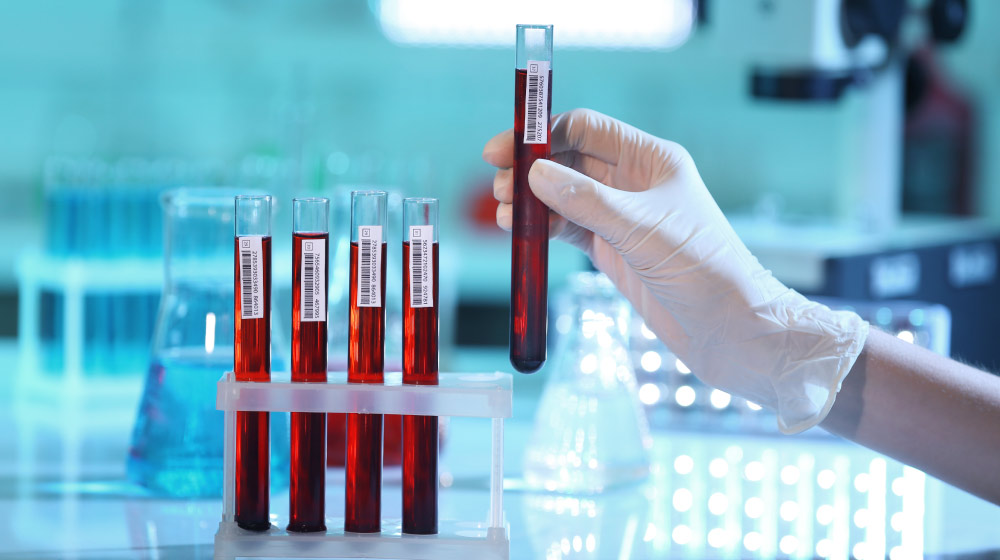Have you ever wondered about the silent threat from within, undermining your health without realizing it? Inflammation, a cornerstone of our immune system’s defense, can be an enemy when left unchecked.
And there are inflammatory markers in the blood. These subtle yet crucial signals offer vital insights into our health.
In this blog, we delve into why testing for these markers is vital, shedding light on their role in safeguarding our well-being.
Listen to Your Body! Here’s the Significance of Testing for Inflammatory Markers in Blood
Why is Inflammation Bad?
Inflammation works by detecting and neutralizing harmful agents. When pathogens invade, immune cells release chemicals to increase blood flow, causing redness and heat. This rush of immune cells engulfs and destroys intruders, protecting the body from infection.
However, despite being a natural and crucial part of the body’s defense mechanism, inflammation can be a double-edged sword when it goes awry.
While acute inflammation protects the body from infections and injuries, chronic inflammation can wreak havoc on our health. Persistent, low-level inflammation has been linked to a plethora of diseases, including:
- Heart disease
- Diabetes
- Obesity
- Fatty liver disease
- Cancer
- Neurological disorders (e.g., Alzheimer’s)
Chronic inflammation is the silent villain, undermining our well-being by gradually eroding our health without overt symptoms.
What Causes Inflammation?
Inflammation is a fundamental response, a natural defense mechanism within our bodies. It’s how we react to various triggers – from infections by bacteria, viruses, or other microorganisms to physical injuries and irritants.
However, the immune system can experience failures and become overactive, triggering chronic inflammation. This persistent, low-level inflammation is akin to a slow burn and significantly threatens our overall health.
Lifestyle factors play a pivotal role in tipping the balance towards chronic inflammation.
Poor dietary choices, a sedentary lifestyle, chronic stress, and obesity can fuel the flames of inflammation. Moreover, smoking, excessive alcohol consumption, and exposure to environmental toxins can exacerbate the problem.
What Are Inflammatory Markers in Blood?
Inflammatory markers in the blood are molecules that serve as flags, signaling the presence of inflammation in the body. They act as messengers, carrying information about the body’s internal state to medical professionals.
C-reactive Protein (CRP) and Erythrocyte Sedimentation Rate (ESR) are the most commonly used markers.
- CRP, produced by the liver, is a protein that increases when inflammation occurs. Its high sensitivity makes it a valuable marker for acute and chronic inflammation.
- ESR measures the rate at which red blood cells settle in a test tube over time. An elevated ESR can indicate inflammation, but it’s less specific than CRP and can be influenced by other factors.
How Are Inflammatory Markers in Blood Tested?

Testing inflammatory markers in the blood is relatively simple and non-invasive. A blood sample is typically drawn from a vein in your arm.
This blood sample is then sent to a laboratory for analysis.
The levels of CRP and ESR are measured, and the results are reported in milligrams per liter (mg/L) for CRP and millimeters per hour (mm/hr) for ESR.
The normal ranges for these markers may vary slightly from one lab to another.
Normal Levels of Inflammatory Markers in Blood
Normal levels of inflammatory markers in the blood indicate a well-balanced immune system and overall health.
- For CRP, a normal range is usually less than 10 mg/L.
- For ESR, it’s typically less than 20 mm/hr for men and less than 30 mm/hr for women.
Elevated Levels of Inflammatory Markers in Blood
When CRP and ESR levels rise above the normal range, it’s a red flag signaling that inflammation is at play within the body. Elevated inflammatory markers in the blood can be a silent threat, often accompanying various health conditions.
Meanwhile, these markers are our body’s way of crying out for help. Conditions associated with elevated levels of inflammatory markers in the blood include:
- Infections
- Tissue Injury
- Stress
- Obesity
- Diabetes
- Autoimmune Diseases
- Cardiovascular Disease
- Chronic Inflammatory Diseases
- Cancer
Why is Testing for Inflammatory Markers Vital?

Testing for inflammatory markers in the blood empowers individuals to take control of their health and make informed decisions about their well-being.
Early Detection and Intervention
Elevated inflammatory markers in the blood can be like a ticking time bomb, waiting to unleash havoc on your health. They often precede the overt symptoms of many diseases, giving you a critical window of opportunity for intervention.
Therefore, early detection through inflammatory marker testing can be life-saving.
For instance, elevated CRP levels have been associated with an increased risk of heart disease. Catching this warning sign might lead to lifestyle changes or early medical treatments that can significantly reduce the risk of a heart attack.
Treatment Facilitation and Adjustment
Moreover, testing for inflammatory markers in the blood can provide insights into the effectiveness of treatments for inflammatory diseases.
Monitoring CRP and ESR levels can help healthcare professionals determine whether prescribed therapies are working or if adjustments are needed. This approach enhances the quality of patient care and can save time, money, and unnecessary suffering.
How to Normalize Inflammatory Markers in Blood
Once elevated inflammatory markers in the blood are detected, the next critical step is to take action. The goal is to normalize these markers to reduce the risk of chronic diseases and promote overall well-being.
Here are some strategies to help you get started:
- Diet: Consume a balanced diet rich in fruits, vegetables, whole grains, and lean proteins. Limit processed foods, added sugars, and saturated fats.
- Exercise: Regular physical activity helps to reduce inflammation. Aim for 150 minutes or more of moderate-intensity exercise per week.
- Stress Management: Practice stress-reduction techniques like mindfulness, meditation, or yoga to lower cortisol levels, a stress hormone linked to inflammation.
- Weight Management: If you’re overweight or obese, losing weight can significantly reduce inflammation.
- Smoking Cessation: Quit smoking, as smoking contributes to chronic inflammation.
- Medication: Your healthcare provider may prescribe medications to manage inflammation for certain conditions, such as autoimmune diseases.
- Medical Monitoring: Regular follow-up with your healthcare provider is essential to track changes in inflammatory markers and adjust treatment plans as needed.
- Antioxidants: Increase your intake of foods rich in antioxidants, like berries, nuts, and leafy greens, which can help counteract inflammation.
Bottom Line
Recognizing the silent threats posed by elevated inflammatory markers in the blood is the first step toward safeguarding your health.
These markers, such as CRP and ESR, offer early warning signals that should not be ignored. Routine testing and lifestyle changes can help you maintain a healthy balance and protect yourself from chronic inflammation.
The power to take control of your health lies within your grasp – it starts with understanding, testing, and acting to keep inflammation at bay.

